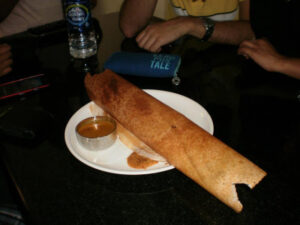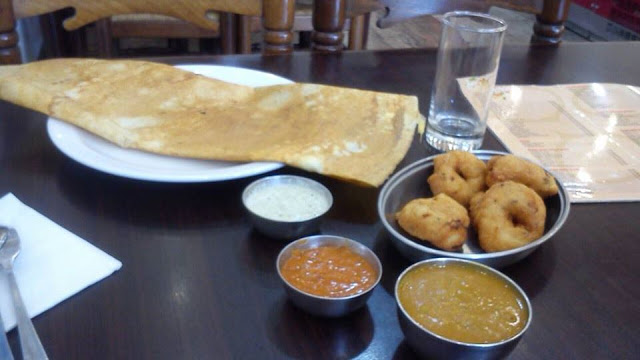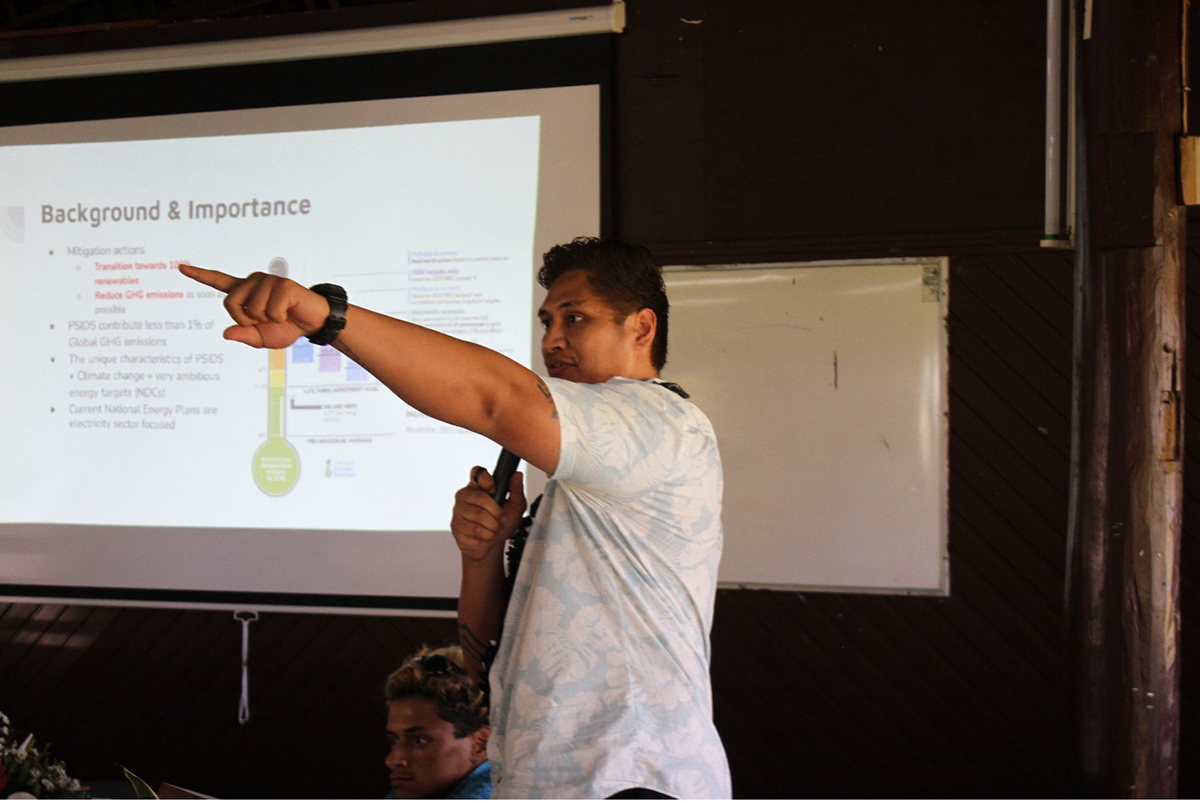“In praise of comfort food – in praise of dosa”
October 20 Food brings comfort, and comfort foods have strong connection to personal history. Shastri Sookdeo, 27, a Correspondent from Trinidad now living in Amsterdam, describes his favourite comfort food and its links to his travels.
Food brings comfort, and comfort foods have strong connection to personal history. Shastri Sookdeo, 27, a Correspondent from Trinidad now living in Amsterdam, describes his favourite comfort food and its links to his travels.
Food is usually linked to memory. This isn’t an original idea and to many people the food that I’ve chosen is barely memorable, just as most people won’t really be able to speak of great cheese sandwiches or fried eggs and not mean a specific meal instead of the entire selection of eggs or sandwiches.
Dosa is a simple meal which can be ready in a matter of minutes. I usually explain it as a savoury crepe made of rice and lentil flour. It is served with sambar (a lentil and tamarind stew) and coconut chutney.
The best dosa I’ve ever had is at Dosa Mahal in Toronto. It was the first time I’d had dosa in almost two years, and that was probably why it remained in my mind as a representation of the best. It’s impossible to untangle the experience of food from the taste only. The taste is linked to history. It’s a common enough trope that even children’s movies like Ratatouille can use the idea that a simple dish which evokes memories of childhood will have deeper and almost spiritual resonance than extremely complex and difficult dishes.
Dosa used to be another food that was linked to specific memories of a time and place. Just as deep fried tofu always reminds me of my last few months in Trinidad and cheese croissants remind me of my first trip to the Netherlands; dosa was inextricably linked to my Christmas in India.
 I say was because my memories of dosa are no longer limited to India. Over the past year, those recollections have become mixed with other memories. Now dosa represents meals in Malaysia, Paris and most strongly, in Wembley. It has overtaken almost all other meals as my comfort food. Primarily due to it being a relief to find it. Because even in places where finding vegetarian food was close to impossible (like Penang), dosa could be managed to be found as an option.
I say was because my memories of dosa are no longer limited to India. Over the past year, those recollections have become mixed with other memories. Now dosa represents meals in Malaysia, Paris and most strongly, in Wembley. It has overtaken almost all other meals as my comfort food. Primarily due to it being a relief to find it. Because even in places where finding vegetarian food was close to impossible (like Penang), dosa could be managed to be found as an option.
Despite being primarily of Tamil descent, dosa was nothing something I was familiar with growing up. In Trinidad, Indian culture lacks regional differentiation despite the varied backgrounds of people of East Indian descent. I grew up with Trinidadian versions of Indian staples such as puri and paratha, but breakfast never involved any kind of Indian roti except sada roti.
I do not miss sada or doubles at all, despite having not had any since I migrated two years ago. Thinking about these foods do not cause me to wish for them. But I have rarely been able to think of dosa without wishing it was available in close proximity. Now that it is, I rarely think of it without buying it shortly afterward.
The simplicity of this food allows it to be ready to be eaten very shortly after I’ve decided I want to eat it. It’s another candidate for strengthening my belief that fast food can be good if not bought from chains (depends on the dosa vendor, of course). And by being so strongly linked to time and place, it serves to strengthen the idea that street food is more of a regional marker than high-end food can ever be.
Photo credit: courtesy of Shastri Sookdeo
…………………………………………………………………………………………………………………
About me: I most recently worked as an operations analyst with a focus on procurement. My interests are sports, foreign languages, travel and cooking. My studies in finance have also given me a fascination for currency markets and international trade.
My ambition is to be able to travel extensively and attempt to document and describe the intricacies of the many diverse sporting and culinary cultures across the world.
…………………………………………………………………………………………………………………
Opinions expressed in this article are those of the author and do not necessarily represent the views of the Commonwealth Youth Programme. Articles are published in a spirit of dialogue, respect and understanding. If you disagree, why not submit a response?
To learn more about becoming a Commonwealth Correspondent please visit: http://www.yourcommonwealth.org/submit-articles/
…………………………………………………………………………………………………………………




